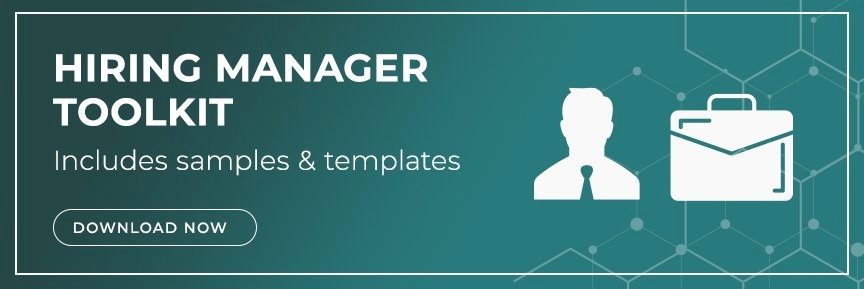How to Hire During the COVID-19 Pandemic
HIRING, RECRUITING, BIOTECH RECRUITER, RECRUITING DONE RIGHT, CLIA LAB, INTERVIEWING TIPS, MEDICAL DIAGNOSTICS RECRUITINGLike everything else, the hiring landscape has changed radically since the start of the pandemic. The way you hire new employees has likely changed, and you may be struggling with interviewing and other critical parts of the hiring process.
Worse, many companies are struggling to find suitable candidates since COVID-19 has changed the way many people look for jobs.
Fortunately, job growth has increased again in the last several months, with a particularly strong surge in Molecular Diagnostics, CLIA Lab, and Life Science-related jobs. That surge in healthcare is likely a response to increased testing and laboratory demands, also thanks to COVID-19.
With the new challenges and surge in hiring during the pandemic, it's more important than ever to make sure you're prepared. And you are picking the right candidates.
Hiring Candidates Without Meeting Them In Person
Many hiring managers consider the in-person interview the best test of whether any given candidate is a good fit for their organization. That's understandable. The body language cues and other information you get from an in-person interview were once invaluable.
But with more technology at our fingertips than ever before, in-person interviews are a luxury, not a necessity. Remote interviewing, especially with video conferencing and other advanced telepresence technology, can be as beneficial as in-person interviews.
More importantly, remote interviewing is likely to become the norm now that the country is going through an extended work-from-home experiment. Work from home is likely here to stay, and remote interviewing is a critical part of that reality.
Remote interviewing can also test some skills that an in-person interview can't. For instance, you can get a quick read on how technologically literate a candidate is as they navigate Zoom and other video conferencing programs.
You can also evaluate your candidate's presentation skills and how well they respond to new situations.
Once the infrastructure is in place, remote hiring is likely to be less expensive and time-consuming than in-person interviews. That's because you don't have to pay for the space your candidate is interviewed in, the staff that greets them and gets them ready for the interview, and other overhead associated with hiring.
That's not to say that remote hiring is perfect. There are still some limitations, mainly since video conferencing always won't give you a read on your candidate's complete body language. You also won't be able to host lunch or dinner meetings and interviews, which can be a great way to test how well a candidate might fit into your existing workforce.
Still, with practice, this interview style can deliver the exact candidates you need.
Questions Will Stay Mostly the Same
Especially at first, treat your remote interviews like you would treat an in-person interview. A question that is important in person is likely just as important virtually. Take the extra time you save by not having to travel to an interview site to practice your questions and think about your interviewing skills.
What interview questions do you find most telling? Do you minimize how much you lead a candidate to the right answer?
What Questions Help Determine if a Candidate is a Good Fit?
Just like in-person interviews, your interviewee's past accomplishments are probably the best predictor of their future success. But there are a few questions you may want to add to your virtual interview. For instance:
-
-
- Do you have a place you can work from home?
- Is your workspace a dedicated workspace?
- Are you prepared to work from home occasionally (even if the position isn’t remote)?
- Have you traveled recently?
- Are you willing to travel, given the current situation? (if the job requires traveling)
-
References Are More Important Than Ever
Our firm has always considered reference checks as a critical part of the hiring process. They are the best way to know who you are hiring before you hire them. Don't skip reference checks, and don't be afraid to ask more questions too.
References are an excellent way to judge how well a candidate will fit into your work culture. They also give you a better sense of the kind of people your candidate will naturally gravitate toward, and what those people think of your candidate.
Since you can't meet candidates in person right now, this step may be one of the most informative parts of the hiring process. Take it seriously, and you'll find yourself hiring better-suited candidates.
More Interview Ideas
Since the pandemic is forcing us to innovate, here are some additional ways you can get more out of candidate interviews, without investing too much time or resources to do it.
Pre-screen With Audio Recordings
We've recently begun recording the initial interview with candidates (audio) to give the hiring manager. That way, hiring managers can listen to the 10-15 minute interview whenever convenient for them. An initial interview may even impress hiring managers enough to push a candidate forward on the merits of that interview alone.
Changes in Candidate Reactions
The world is a turbulent place right now. Your candidates are likely reacting to that fact, even if they don't realize it. Candidates are more cautious and less likely to accept a job they view as risky or uncertain.
Candidates know that they might not be able to get a different job if this one doesn't work out, and that may make them less likely to accept a new job unless you convince them.
How Do You Help Candidates Choose You?
The more transparent you can be through the hiring process, the more likely candidates are to trust you and accept any job offers.
Let candidates talk with employees and ask open questions about your work culture and anything else they’re wondering about.
Just as important, don’t try to rush a candidate to decide. You might need them quickly, but your candidates are much more likely to jump ship if you press them right now.
Most importantly, be honest with your candidates. Don't try to oversell the position, or make it seem like something it's not. Especially don't try to make the job more appealing than it is. Your candidates are likely on high alert for a lousy deal, and they'll be able to tell that you're trying to butter them up.
Final Thoughts
Hiring might be different thanks to the pandemic, but the core of good hiring practice is the same. As long as you're using sound hiring and interview techniques, you won't have to change too much.
Just remember, ask good interview questions, perform reference checks, pay attention to them, have several conversations with candidates before you hire them, and be open to new ideas as your organization rises to the pandemic's challenge.





No Comments